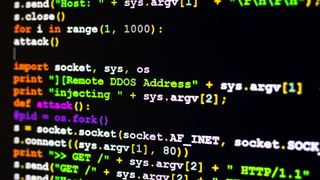Millions of secrets and auth keys were leaked on GitHub last year
Devs don't care about exposing sensitive data, it seems

Millions of secrets and authentication keys were leaked on GitHub in 2023, with the majority of developers not caring to revoke them even after being notified of the mishap, new research has claimed.
A report from GitGuardian, a project that helps developers secure their software development with automated secrets detection and remediation, claims that in 2023, GitHub users accidentally exposed 12.8 million secrets in more than 3 million public repositories.
These secrets include account passwords, API keys, TLS/SSL certificates, encryption keys, cloud service credentials, OAuth tokens, and similar.
Slow response
During the development stage, many IT pros would hardcode different authentication secrets in order to make their lives easier. However, they often forget to remove the secrets before publishing the code on GitHub. Thus, should any malicious actors discover these secrets, they would get easy access to private resources and services, which can result in data breaches and similar incidents.
India was the country from which most leaks originated, followed by the United States, Brazil, China, France, and Canada. The vast majority of the leaks came from the IT industry (65.9%), followed by education (20.1%). The remaining 14% was split between science, retail, manufacturing, finance, public administration, healthcare, entertainment, and transport.
Making a mistake and hardcoding secrets can happen to anyone - but what happens after is perhaps even more worrying. Just 2.6% of the secrets are revoked within the hour - practically everything else (91.6%) remains valid even after five days, when GitGuardian stops tracking their status. To make matters worse, the project sent 1.8 million emails to different developers and companies, warning them of its findings, and just 1.8% responded by removing the secrets from the code.
Riot Games, GitHub, OpenAI, and AWS were listed as companies with the best response mechanisms.
Are you a pro? Subscribe to our newsletter
Sign up to the TechRadar Pro newsletter to get all the top news, opinion, features and guidance your business needs to succeed!
Via BleepingComputer
More from TechRadar Pro
- GitHub's secret scanning feature is now even more powerful, covering AWS, Google, Microsoft, and more
- Here's a list of the best firewalls around today
- These are the best endpoint security tools right now
Sead is a seasoned freelance journalist based in Sarajevo, Bosnia and Herzegovina. He writes about IT (cloud, IoT, 5G, VPN) and cybersecurity (ransomware, data breaches, laws and regulations). In his career, spanning more than a decade, he’s written for numerous media outlets, including Al Jazeera Balkans. He’s also held several modules on content writing for Represent Communications.
Most Popular
